From the President: Family Medicine for a Changing World
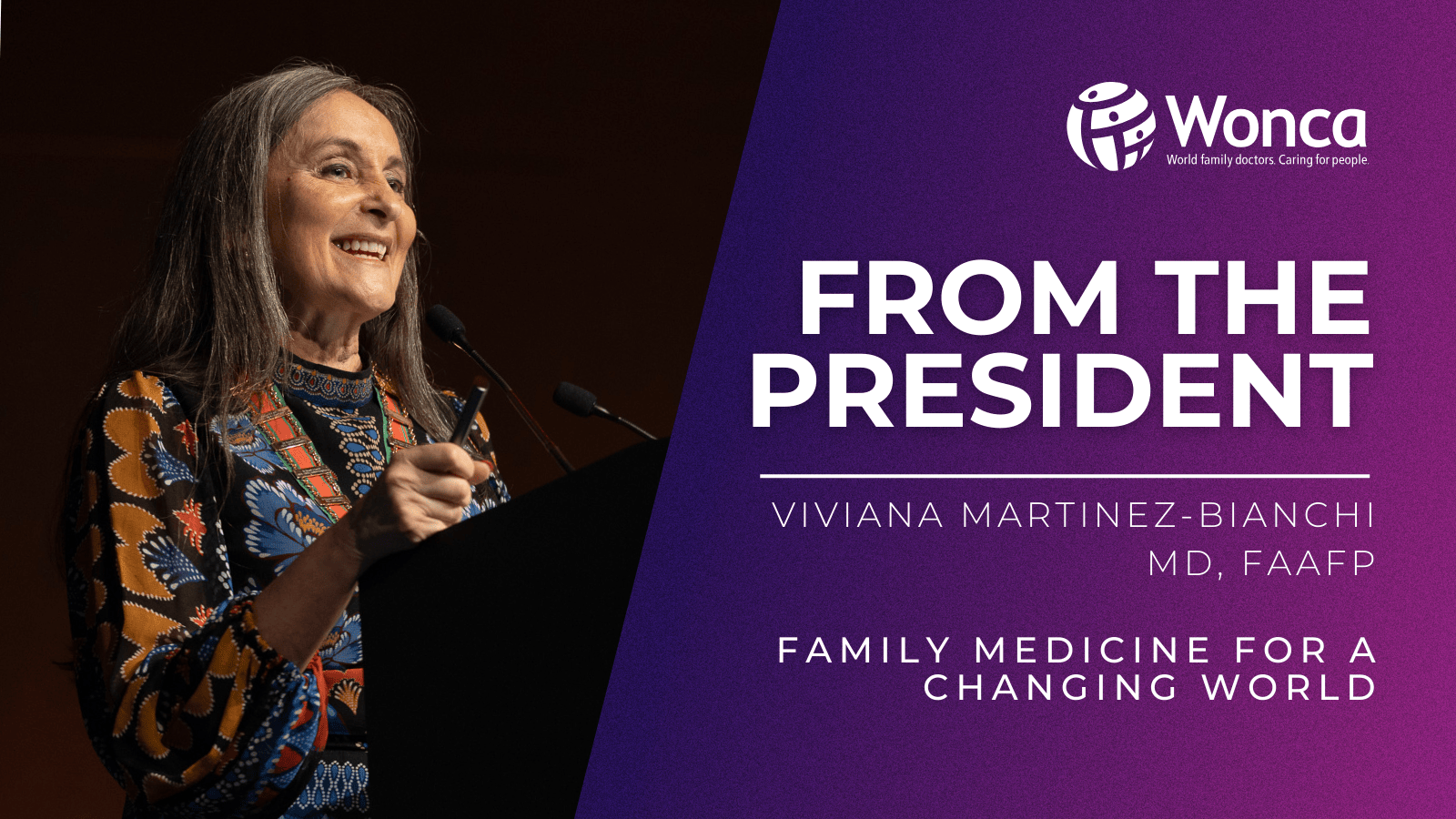
My first column as President
By Viviana Martinez-Bianchi, MD, FAAFP,
President, World Organization of Family Doctors (WONCA)
On September 20, 2025, I stood before hundreds of colleagues in Lisbon, Portugal, at the WONCA World Conference, humbled and joyful by the honor of being installed as the new President of the World Organization of Family Doctors. It was a moment filled with gratitude, reflection, and a deep sense of responsibility.
It was also a moment of history. I am the first person from Latin America to be elected as President of WONCA, and the first woman from the Americas to hold this office. This milestone belongs not only to me but to all those who have opened doors, lifted barriers, and worked to ensure that our WONCA reflects the diversity of the organizations we represent, and the communities we serve.
For younger colleagues — especially women, those from regions or backgrounds that have long been underrepresented in global leadership — I hope this moment is a reminder: you belong here. Your voices matter, your experiences matter, and your leadership matters. WONCA is stronger when every region, every culture, and every generation helps shape our shared future.
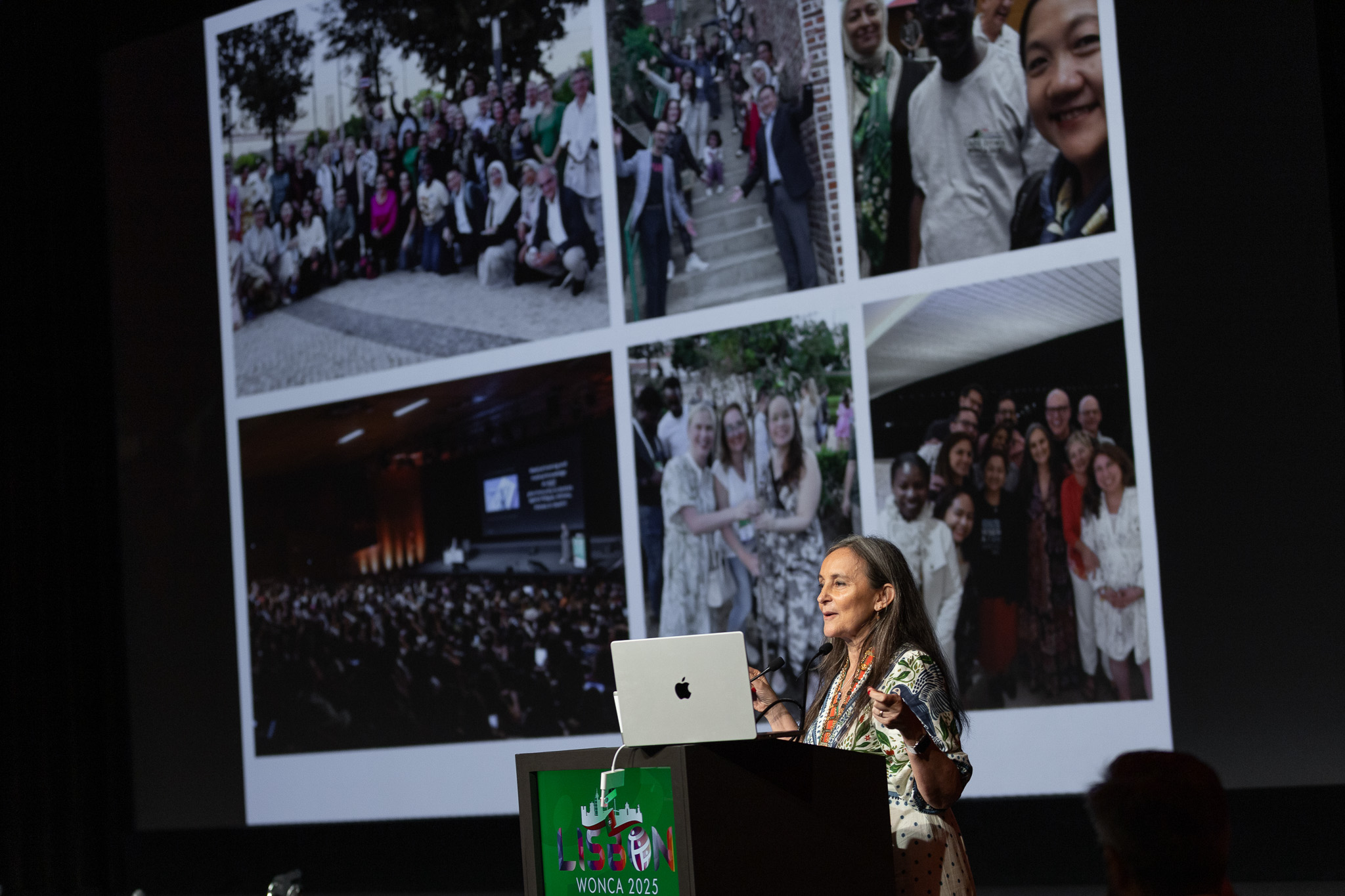
My Journey: from two Homes in WONCA to global leader
Every leader’s story begins somewhere. Mine begins in Argentina, where I was born and raised, and where I learned that health and community are inseparable. When I finished medical school at the University of Rosario in 1990, my journey brought me to the United States, where I trained at the University of Iowa Family Medicine Residency, and where I have built my life, family, and career.
Today, I serve as a practicing family doctor, educator, researcher, and faculty member at the Duke University Department of Family Medicine and Community Health, in North Carolina. But it was in Latin America where I was first introduced to WONCA, during the first Cumbre — or High Level Summit — I attended in Paraguay. Iberoamericana as a region encouraged, supported, and helped me understand the global family medicine movement.
This means that I grew at the intersection of two WONCA regions: Iberoamerica, my region of origin, and North America, my home region. Both have shaped me profoundly — Iberoamerica by awakening my global consciousness and North America by grounding me in the practice and teaching of family medicine. I owe a deep debt of gratitude to colleagues in both regions.
My leadership journey within WONCA has deepened this perspective. From 2016 to 2021, I served as WONCA’s Liaison to the World Health Organization and as a member, later chair, of our Organizational Equity Committee. Since 2023, I have been honored to serve as President-Elect. These roles have shown me both the strengths and the challenges of our global family.
Through this work, I have discovered something profound: no matter what region I am in, I feel at home. I stand in awe and admiration of my colleagues everywhere, and I feel deeply connected to them because we share a common language — the language of family medicine and general practice. It is this bond that makes us a true global community, and it is the foundation on which I now lead as President.
Gratitude to Those Who Came Before
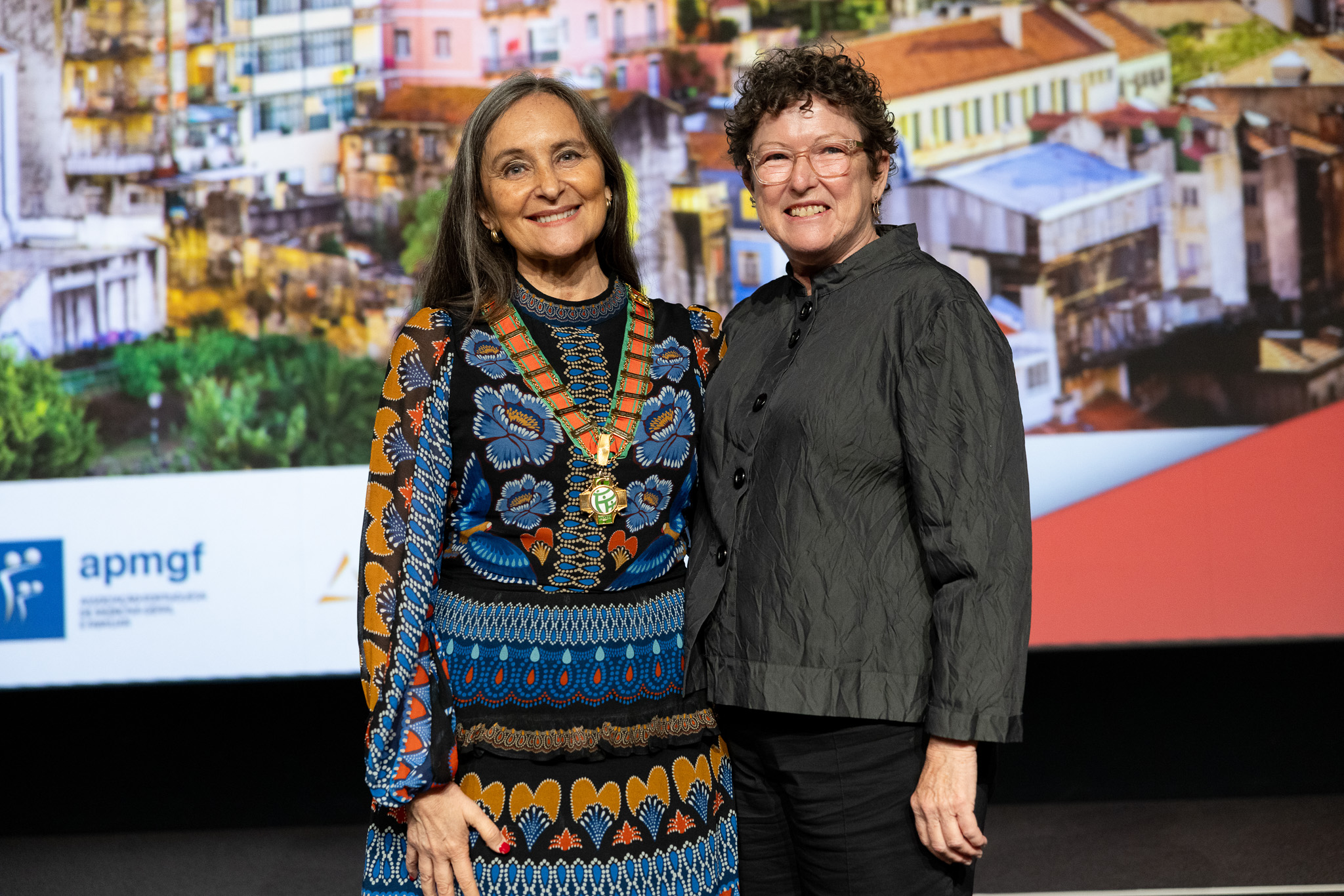
No leader walks alone. I want to begin by recognizing A/Prof Karen Flegg, our Immediate Past President, whose clarity, wisdom, and dedication carried WONCA through a transformative period.
I also want to acknowledge with deep respect all of WONCA’s Past Presidents. Each of them has left an indelible mark on our organization, shaping our global family of family doctors and advancing the cause of primary care worldwide. I am especially mindful of the recent leaders on whose shoulders I stand:
- Dr. Anna Stavdal (Norway)
- Professor Donald Li (Hong Kong SAR, China)
- Professor Amanda Howe (United Kingdom)
- Professor Michael Kidd (Australia)
- Professor Richard Roberts (USA)
- Professor Chris van Weel (Netherlands)
I am honored to follow in their footsteps and to carry forward the vision they entrusted to us.
I am deeply grateful to Dr. Harris Lygidakis, WONCA’s CEO, and our Secretariat team, whose quiet but indispensable work sustains our global vision every day. Their commitment and professionalism ensure that WONCA’s values are translated into action and that our global family remains connected.
I extend heartfelt thanks as well to the leaders of WONCA’s Working Parties and Special Interest Groups. Your scholarship, creativity, and collaborative spirit carry forward the scientific and professional heart of family medicine. You ensure that WONCA continues to be a source of innovation, evidence, and advocacy, and after our start with the Collaboration Hub, I look forward to supporting your important work in the years ahead.
I am also grateful to the many leaders, mentors, and peers across North America who have walked beside me on this path. My membership in organizations such as the Iowa and the North Carolina Academy of Family Physicians, the American Academy of Family Physicians (AAFP), the Society of Teachers of Family Medicine (STFM), and the American Board of Family Medicine (ABFM) have sustained my professional growth. My clinical home at Duke Family Medicine and Community Health continues to remind me daily of the privilege of serving patients across lifetimes, and sharing work with an amazing team.
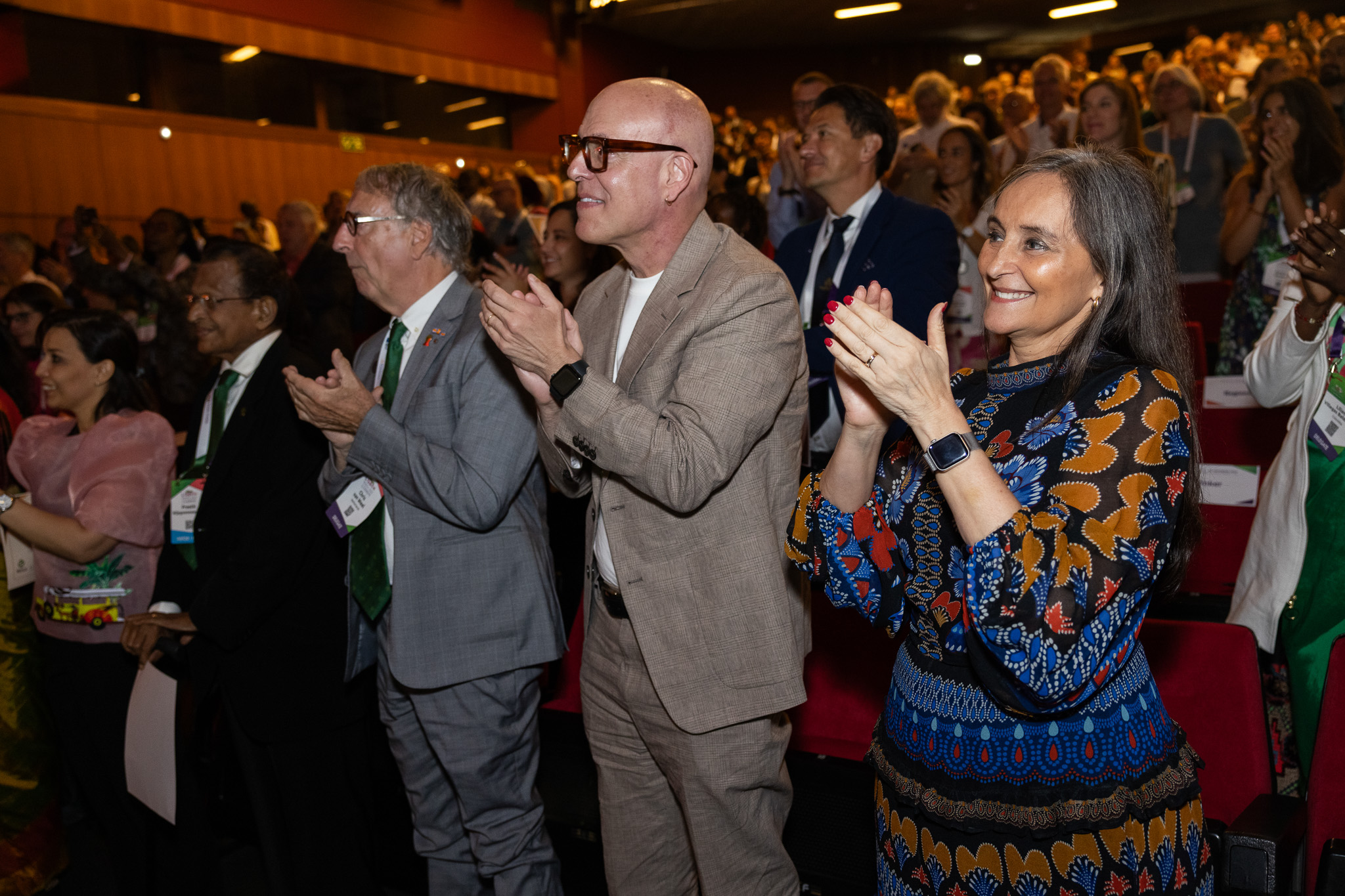
I am thankful to my husband Greg, the love of my life, and to our son Francesco, thank you for your love, your patience, and the joy you bring into every day. To my extended family, thank you for cheering me on across distances and for sharing your time with WONCA. Your support has been my anchor, and this work would not be possible without you. My Mother Queenie was the one who gave me wings to fly when I was a young girl growing up in Argentina, and she has supported me at every step of the journey.
And to my father, Dr. Carlos Martinez Lacabe, a vascular surgeon with a huge heart for public health, I owe my first vision of what a community-minded doctor could be. On the banks of the Paraná River in Argentina, I watched him care for fishermen and their families who lived on the islands, perform surgery in the public hospital, and serve as the trauma doctor on call in the emergency room. He showed me that even in times of dictatorship and repression, service to the community could be an act of hope and resistance.
In 1978, when I was 14, he explained to me the World Health Organization’s Alma-Ata Declaration, which affirmed that health is a fundamental human right. Reading the declaration and watching footage of the event, I knew I wanted to become a doctor — one whose career would join primary care with public policy. In that moment, I began to dream of the path I am privileged to walk today. My father’s example continues to guide me as a family doctor and now as WONCA President, in spite of his untimely death 34 years ago.
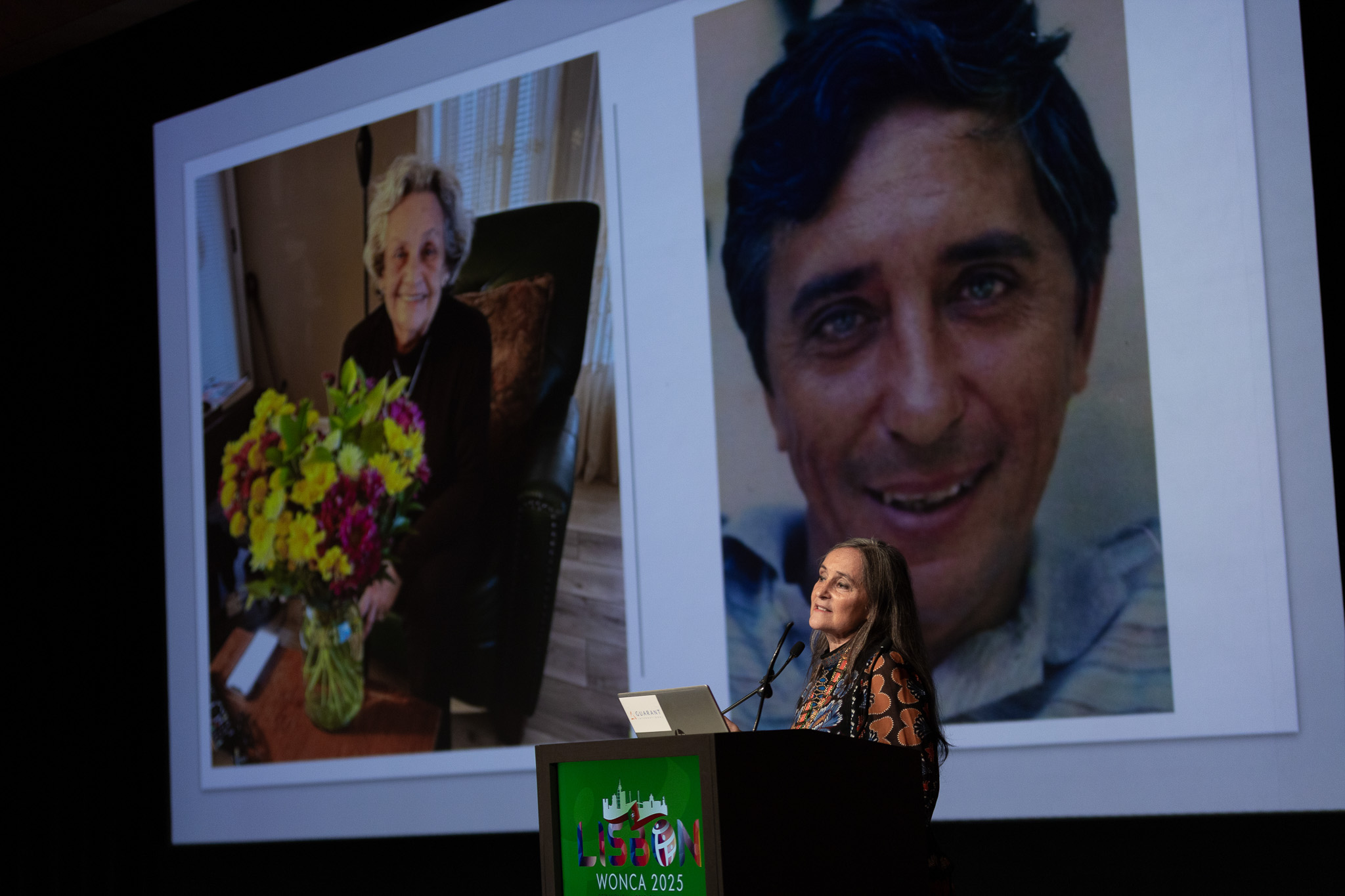
The Challenges We Face
As I take up this role, I am acutely aware of the challenges before us:
- Universal health coverage remains elusive. More than 4.5 billion people — over half the global population — are not fully covered by essential health services. Family doctors see the human consequences of these gaps every day.
- Climate change is a health crisis. Rising temperatures, food and water insecurity, and displacement threaten the wellbeing of millions. Vulnerable communities are hit hardest.
- Health inequities remain severe and persistent, and marginalized populations in both wealthy and low-income countries continue to face substantial barriers to timely, high-quality care.
- Workforce shortages and burnout place enormous strain on family doctors everywhere. We cannot deliver primary care for all without sustaining the very workforce that makes it possible.
- Misinformation and mistrust undermine public health efforts, weaken vaccination campaigns, and erode confidence in health systems. Family doctors often stand on the frontlines of rebuilding trust with patients and communities.
- Conflict and war devastate health systems and communities. Attacks on health facilities, forced displacement, and the dehumanizing effects of violence strip people not only of care but of dignity. In these most difficult settings, family doctors continue to serve as healers and witnesses, reminding the world that health is a human right even in times of chaos.
Family medicine stands in the interstitium between medicine and society. We are present where policy meets lived experience, where science meets human suffering, and where communities seek healing. Our role is not just to treat illness but to advocate for systems that make health possible.
As I said in Lisbon: health is a political choice. Decisions made in parliaments, ministries, and boardrooms reverberate in our clinics, our hospitals, and our communities. WONCA must remain a strong advocate for the idea that health is a fundamental human right.
And in facing these challenges, we must keep one truth at the center: the burden of misinformation, climate change, inequities, and conflict always falls heaviest on the most marginalized. That is why equity must remain the thread that holds our vision together — guiding every policy, every partnership, and every action we take.
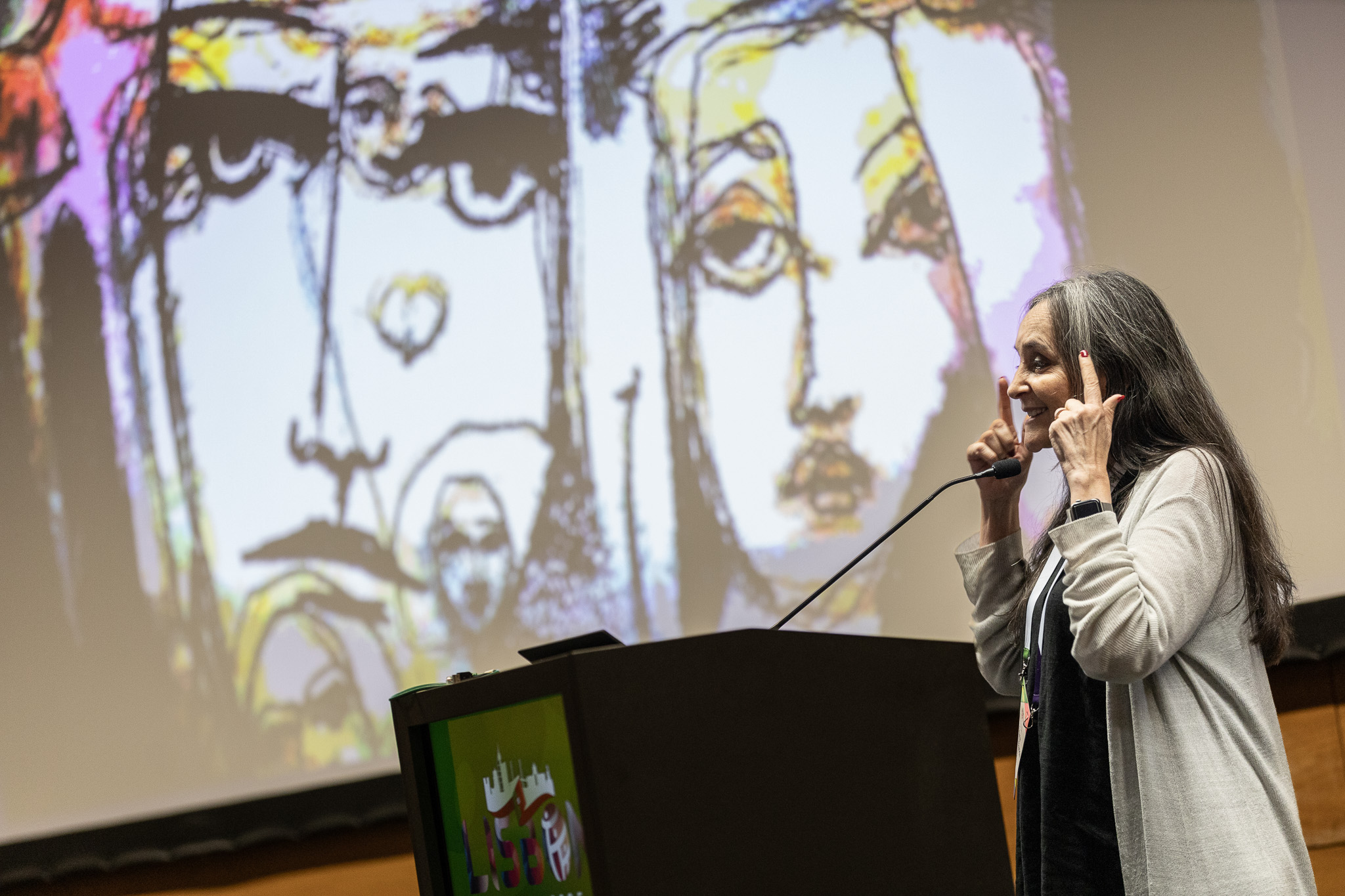
A Vision for the 2025–2027 Presidency
I step into this role guided by core values I reflect in family medicine: human touch, accountability, team spirit, compassion, empathy, and reflection. These are not abstract ideals — they are the daily practices that shape how we care for patients, how we work with colleagues, and how we build healthier societies. They will also guide how WONCA leads in the years ahead.
The vision rests on four interwoven priorities that support the WONCA Strategic Plan for 2023–2027: strengthening our workforce, placing equity at the heart of health, building partnerships, and amplifying knowledge through research and visibility.
1. Workforce Strengthening, Sustainability, and Wellbeing
The backbone of primary care is its workforce. Without well-supported family doctors, there is no path to universal health coverage. We must:
- Fight for investment in family doctors — not only by expanding training programs and ensuring that family medicine is included in the curriculum of every medical school on this planet, but also by advocating for fair pay and safe working conditions.
- Prioritize workforce wellbeing by addressing burnout, workload inequities, and safety, because the health of our workforce must be protected; a burned-out doctor cannot sustain a healthy society.
- Strengthen mentorship, inspire the next generation of leaders, and engage medical students directly by supporting the creation of a Student Doctors Movement with an interest in family medicine.
2. Equity at the Heart of Health
Equity is not a theme — it is the thread that holds our vision together.
- WONCA will work to amplify the voices of marginalized populations and ensure that our policies, partnerships, and advocacy place their needs at the center. Highlight family medicine’s unique ability to close health gaps by addressing social determinants in communities.
- We will highlight family medicine’s unique ability to close health gaps by addressing social determinants and working in communities.
- Family doctors as equity champions.
3. Partnership and Collaboration
No single organization can transform health systems alone. WONCA’s strength lies in partnership.
- We will deepen ties with WHO and its regional offices, OECD, and other multilateral organizations.
- We will build new collaborations with governments, universities, and civil society.
- We will expand cross-regional learning so that innovations in one country can inspire change in another.
4. Knowledge Sharing and Research Visibility
Family medicine generates powerful evidence, yet too often it remains invisible.
- WONCA will establish a WONCA Journal as a platform to showcase research, innovations, and best practices from across regions.
- We will establish WONCA research collaborating centers and WONCA research fellowships.
- We will encourage members to share their stories and publish their work, strengthening family medicine’s voice in global health debates.
Honoring WONCA’s History
As we look to the future, we must also honor our past. Founded in 1972, WONCA has grown from a small group of visionaries into a truly global organization, uniting family doctors from every region under a shared commitment to primary care.
To preserve this legacy, I am establishing a WONCA History Project. It will capture the stories of our founders, leaders, and member organizations so that future generations can learn from our journey. By knowing where we come from, we strengthen our ability to shape where we are going.
Lessons from the Global Community
Everywhere in the world, family doctors are innovating, adapting, and leading. From urban centers to the most remote rural communities, our colleagues are finding new ways to meet the needs of patients and populations.
The lessons are many: how to deliver care with limited resources, how to advocate for stronger health systems, how to adapt education and training to new realities, and how to keep equity and compassion at the heart of practice.
These stories and experiences remind us that WONCA is more than a federation of member organizations — it is a living network of shared learning. Just as the WONCA History Project will preserve and honor the contributions of the past, these ongoing innovations ensure that our history continues to be written every day.
Welcoming the Executive Committee September 2025–November 2027
These lessons are embodied by the leadership team elected to guide WONCA with me through the next biennium. Each regional president brings the wisdom of their region — its struggles, its innovations, and its aspirations — into our collective work. Alongside them, our Members-at-Large, President-Elect, Immediate Past-President, and Young Doctors’ Movement representative ensure that WONCA’s leadership remains broad, diverse, and forward-looking.
- President-Elect: Prof. Maria Pilar Astier Peña (Spain)
- Immediate Past President: A/Prof. Karen Flegg (Australia)
- Regional Presidents:
- Africa: Prof. Bob Mash (South Africa)
- Asia Pacific: Dr. Brian Chang (Taiwan, ROC)
- East Mediterranean: Prof. Faisal Al Nasir (Bahrain)
- Europe: Prof. Thomas Frese (Germany)
- Iberoamerica: Dr. Dora Bernal (Colombia)
- North America: Dr. Tania Whitby-Best (Barbados)
- South Asia: Dr. Pramendra Prasad (Nepal)
- Members at Large: Dr. Steve Mowle (UK), Dr. Kim Yu (USA), Dr. Cheryl Chan (Hong Kong SAR)
- Young Doctors’ Movement Representative: Prof. Fabian Dupont (Germany)
This diverse leadership team reflects WONCA’s global reach and our shared commitment to equity, excellence, and innovation in family medicine. I am deeply grateful for their willingness to serve, and I look forward to the wisdom and energy each will bring to shaping the years ahead.
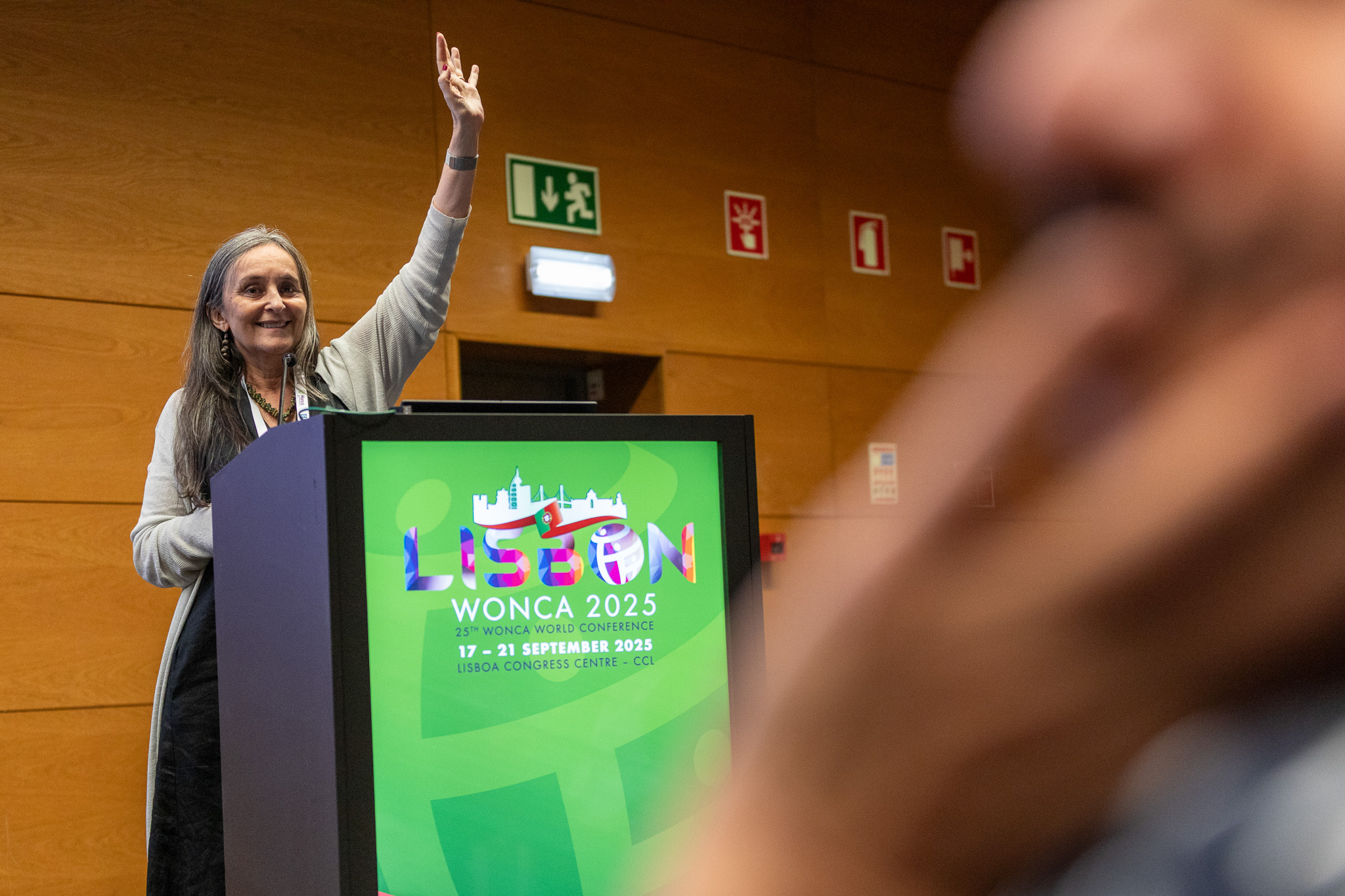
Looking Ahead — A Call to Action
The next two years will demand courage and creativity. WONCA must continue to stand as the voice for family doctors everywhere, advocating for health systems that are equitable, resilient, and sustainable.
I call on each of you — whether you are a young doctor just beginning your career, a seasoned clinician serving your community, or a leader shaping health policy — to engage actively with WONCA. Join a working party, contribute to the upcoming WONCA Journal, mentor the next generation, and bring your voice into our global dialogue.
Together, we can build a future where every person has access to high-quality, continuous, person-centered primary care; where family doctors are supported, respected, and valued; and where communities thrive even in the face of climate change, inequities, and political uncertainty.
To my younger colleagues especially — women and men in every region of the world — I say this: your place is here. Your leadership is needed. As I take on this role, I am deeply aware that I stand on the shoulders of those who came before me. My hope is to do the same for you: to lift as I climb, so that together we build a path wide enough for all of us to walk, and strong enough for those who will follow.
And as we walk that path, let us remember what unites us: no matter where we come from, we share a common language — the language of family medicine and general practice. It is this language of care, continuity, and community that makes us feel at home in every region, and it is this shared bond that will guide WONCA into the future.
I look forward to walking this journey with you.
Viviana Martinez-Bianchi, MD, FAAFP
President, World Organization of Family Doctors (WONCA)